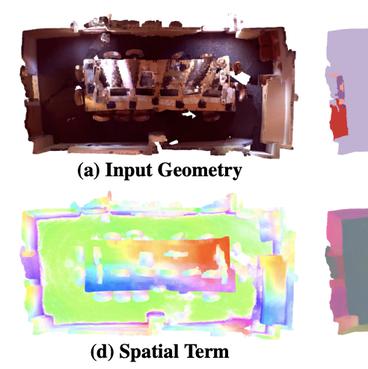Search Results for author: Yuqiu Kong
Found 6 papers, 4 papers with code
Catastrophic Overfitting: A Potential Blessing in Disguise
no code implementations • 28 Feb 2024 • Mengnan Zhao, Lihe Zhang, Yuqiu Kong, BaoCai Yin
To tackle this issue, we initially employ the feature activation differences between clean and adversarial examples to analyze the underlying causes of CO. Intriguingly, our findings reveal that CO can be attributed to the feature coverage induced by a few specific pathways.
Separable Multi-Concept Erasure from Diffusion Models
1 code implementation • 3 Feb 2024 • Mengnan Zhao, Lihe Zhang, Tianhang Zheng, Yuqiu Kong, BaoCai Yin
Large-scale diffusion models, known for their impressive image generation capabilities, have raised concerns among researchers regarding social impacts, such as the imitation of copyrighted artistic styles.
EipFormer: Emphasizing Instance Positions in 3D Instance Segmentation
no code implementations • 9 Dec 2023 • Mengnan Zhao, Lihe Zhang, Yuqiu Kong, BaoCai Yin
It enhances the initial instance positions through weighted farthest point sampling and further refines the instance positions and proposals using aggregation averaging and center matching.
Referring Image Segmentation Using Text Supervision
1 code implementation • ICCV 2023 • Fang Liu, Yuhao Liu, Yuqiu Kong, Ke Xu, Lihe Zhang, BaoCai Yin, Gerhard Hancke, Rynson Lau
Hence, we propose a novel weakly-supervised RIS framework to formulate the target localization problem as a classification process to differentiate between positive and negative text expressions.
Fast Adversarial Training with Smooth Convergence
1 code implementation • ICCV 2023 • Mengnan Zhao, Lihe Zhang, Yuqiu Kong, BaoCai Yin
To address this, we analyze the training process of prior FAT work and observe that catastrophic overfitting is accompanied by the appearance of loss convergence outliers.
Temporal Knowledge Graph Reasoning Triggered by Memories
1 code implementation • 17 Oct 2021 • Mengnan Zhao, Lihe Zhang, Yuqiu Kong, BaoCai Yin
Specifically, the transient learning network considers transient memories as a static knowledge graph, and the time-aware recurrent evolution network learns representations through a sequence of recurrent evolution units from long-short-term memories.


